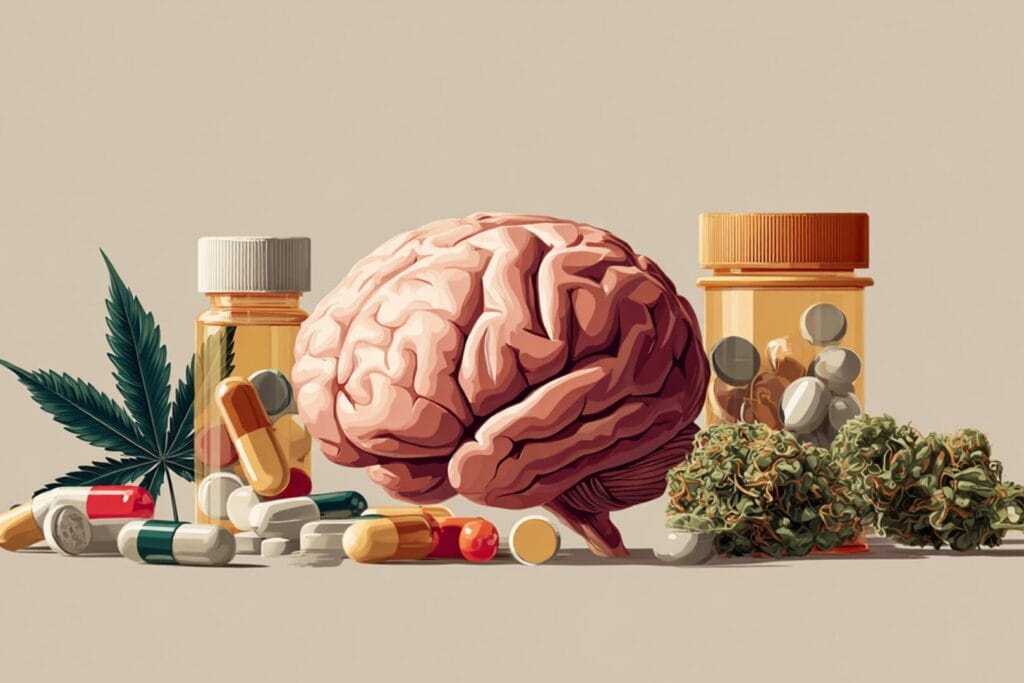A natural response to loss, grief is an emotional journey that can vary for everyone in terms of its intensity and how long it lasts. When you’re recovering from addiction, navigating this turbulent time can pose even more unique challenges, including the risk of relapse.
Whether you’re mourning the loss of a loved one, a relationship, or a dream, grief can test your resolve and become a significant trigger. There are ways, however, to prevent relapse and foster healing as you’re working through the stages of grief while also being in addiction recovery.
The Mechanisms of Relapse
Relapse is not just simply returning to using drugs or alcohol. Instead, it can be a complicated process with emotional, psychological, and physiological factors. A lot of the work you do in formal addiction treatment helps you learn about the process of relapse so that you can build strategies to avoid it.
Relapse can be a single situation with substance use, or it can be a full-blown recurrence of addictive substance use.
It’s not a momentary judgment lapse but a gradual erosion of resilience and coping mechanisms. The process usually begins long before someone engages in the act.
Triggers are a major part of relapse, and they’re catalysts to bring about cravings and undermine your sense of self-control. Grief can be a huge trigger.
The Effects of Grief
Grief is emotionally and physically impactful, and it can significantly affect addiction recovery.
Grief can come in waves and be overwhelming and intense to where it’s hard to function in your daily life. You may feel cognitive effects like brain fog or problems with concentration, or you could start dealing with spiritual effects. It can strain relationships and social connections, and some people experience prolonged or complicated grief.
In terms of emotions, grief can trigger a range of intense feelings like anger, guilt, sadness and despair. Grief is a personal experience that can interrupt your sense of well-being and stability and, in doing so, can make you vulnerable to distress and emotional volatility.
In terms of addiction recovery, grief creates destabilizing emotional upheavals when you’re already likely dealing with the complexities of your sobriety. You may feel more vulnerable than ever to the volatility of your emotions and distress.
Grief can also worsen or amplify pre-existing psychological issues you might have, like anxiety or depression. Losing something of incredible importance to you can make it hard to maintain an emotional balance and cope well with stressors. All of these things contribute to the risk of relapse as you might turn to substances to escape or self-medicate.
There’s also a physical toll of grief. Symptoms like appetite changes, insomnia and fatigue can happen. Physical symptoms related to grief can worsen emotional distress and create a cycle that makes it hard for you to fully engage in your recovery process.
Grief can disrupt your routines and relationships along with your coping strategies, but when you understand the risks, you can take steps proactively to prevent relapse while working through your loss.
Strategies to Deal with Grief in Recovery
Strategies to navigate grief when you’re in recovery include:
- Seek support. This might consist of friends and family, therapists and support groups. Regardless of whether or not you’re in recovery, sharing your feelings when you’re going through grief is critical. You may be able to find local or online support groups for people who are going through grief, or maybe even both grief and recovery.
- Consider therapy: As mentioned, a therapist can be a great source of support as you go through grief, as can a counselor. You can work through your feelings with a trained counselor. In therapy, you have a safe space for exploring your emotions, processing your feelings surrounding a loss, and developing coping strategies.
- Meditation and mindfulness: Practicing meditation and mindfulness helps ground you and bring you back into the present. You can start observing the emotions and thoughts that you’re experiencing without judging them, so you can then respond in clearer and healthier ways.
- Healthy coping strategies: Identify and practice soothing and nurturing coping strategies. For example, you might exercise, journal, spend time outside, or engage in creative activities or hobbies.
- Establish a routine: You may have to shift your daily routine somewhat to fit your evolving needs, but keeping consistency, structure and stability during grief can help you stay focused on your recovery and prevent feeling lost or aimless.
- Set boundaries: Create and follow boundaries with the people or situations that could make your grief feel worse or trigger cravings. Dealing with grief is extremely difficult, and during this time, it’s okay to step away from relationships or environments not conducive to your well-being and sobriety.
- Self-care: Prioritize taking care of yourself in ways that nourish you physically, mentally, and spiritually. Ensure you sleep, eat well, stay hydrated, and manage your stress healthily.
- Cultivate healthy relationships: Whether you’re currently in a period of grief or not, healthy relationships are critical for recovery. During grief, establish relationships with people who encourage you in your recovery and serve as a positive light during challenging times.
- Use or create your relapse prevention plan: If you already have a relapse prevention plan, make sure you’re especially focusing on it if you’re also going through grief.
- Be compassionate and patient with yourself: Grief is a complex, natural process. Be gentle with yourself. Don’t try to speed the process up, and avoid criticizing yourself. You will undoubtedly be facing ups and downs as you’re facing both grief and recovery, and that’s okay.
Implementing these strategies and staying proactive in your recovery journey can help you manage the grief itself and reduce the risk of relapse. This can then facilitate your continued path of growth and healing.
If you aren’t yet in recovery and you’d like to learn more about options to treat addiction, reach out to us at San Diego Detox.







